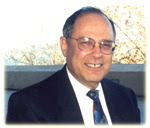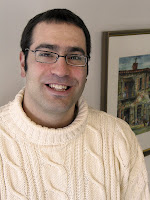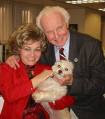There was a time when the Conservative Movement’s law committee (the Committee on Jewish Law and Standards) did not publish its teshuvot (Jewish legal responsa). Twenty-five Conservative rabbis would sit in a room debating and eventually voting on matters of modern Jewish law, and the only people who would be able to read their decisions were other Conservative rabbis.
Today, the teshuvot of the law committee are available for public consumption on the Rabbinical Assembly’s website. So when the CJLS passes what could be considered a controversial paper, one would think there would be much discussion about it. (Certainly no CJLS decision has garnered as much attention as the December 2006 teshuvot concerning homosexuality.)
However, a recent teshuva on a delicate matter co-authored by Rabbi Kassel Abelson and Rabbi Elliot Dorff, and passed by an overwhelming majority of the committee, has received little attention. The paper, titled “Mitzvah Children,” was passed on December 12, 2007 and until today I had not seen any articles published about it.
The essense of Rabbis Abelson and Dorff’s argument is that Jewish couples who are able to reproduce more than two children should do so, and Conservative rabbis should counsel couples in this manner during pre-maritial sessions.
In yesterday’s Jerusalem Post, Rabbi Reuven Hammer (a CJLS member who voted in favor of the teshuva) wrote:
How many children should a Jewish couple have? Although that may seem like a strange question and one that impinges on the private and most intimate life of a couple, it has been addressed by Jewish law in the past and is now the subject of a new teshuva (responsum) issued recently by the Committee on Jewish Law and Standards of the International Rabbinical Assembly of which I am pleased to be a member. Jewish law (Halacha) has dealt with this because the very first mitzva found in the Torah is: “And God blessed them; and God said to them, ‘Be fruitful and multiply and fill the earth and replenish it…'” (Genesis 1:28). It should be noted that this is not phrased in the Torah as a command in a negative sense and certainly not as a punishment, but as a blessing. To understand how to fulfill this mitzva the sages discussed and debated it. Who is responsible to fulfill it? How many children and of what sex are required? Without going into details, suffice it to say that the traditional answer has been that the mitzva is fulfilled when a couple has had two children, one boy and one girl. The Talmud, however, determined that two children are the minimum, but that Jews should continue to have as many children as they can (B. Yevamot 62b), and Maimonides codified this as law.
Even though the authors of the “Mitzvah Children” paper did a very good job explaining their position while remaining sensitive to those couples unable to reproduce or unable to reproduce beyond one or two children, many will still take exception to rabbis imparting their beliefs on such a personal matter (even though the Torah and Jewish law codes certainly enter this arena).
Rabbis Abelson and Dorff propose that Jewish couples who can have children and do not suffer from specific physical, mental or other problems preventing it should have one or more additional children beyond the two required by Jewish law. These children would be called “mitzvah children” as they would assure future Jewish existence.
 Rabbi Elliot Dorff (right), rector of the American Jewish University in Los Angeles, has been preaching this idea for many years. During my second year of rabbinical school he was on faculty at the Jewish Theological Seminary and spoke to my class about his views. While he was sensitive with his language, he nevertheless offended several of my classmates — specifically the single women over a certain age — when he argued that Jewish couples should start having children in their early 20’s and have more than just two offspring. As he does in the teshuva, Rabbi Dorff surmised that it was the responsibilty of the Jewish grandparents (as well as the larger Jewish community) to help financially support these children and their Jewish education. His theory was that Jewish women are putting off starting a family until after their prime childbearing years because of their desire to fulfill their academic and professional aspirations first.
Rabbi Elliot Dorff (right), rector of the American Jewish University in Los Angeles, has been preaching this idea for many years. During my second year of rabbinical school he was on faculty at the Jewish Theological Seminary and spoke to my class about his views. While he was sensitive with his language, he nevertheless offended several of my classmates — specifically the single women over a certain age — when he argued that Jewish couples should start having children in their early 20’s and have more than just two offspring. As he does in the teshuva, Rabbi Dorff surmised that it was the responsibilty of the Jewish grandparents (as well as the larger Jewish community) to help financially support these children and their Jewish education. His theory was that Jewish women are putting off starting a family until after their prime childbearing years because of their desire to fulfill their academic and professional aspirations first.
The Holocaust also factors into his belief. As he writes in the teshuva:
The world’s Jewish community has not recovered numerically from the devastating losses during the Nazi era. Demographic studies point to a Jewish birthrate that will not maintain the Jewish population in the United States, with serious implications for the future of the American Jewish community, the Jewish people as a whole, and Judaism itself. It is essential that we encourage fertile Jewish couples to have at least two children in compliance with the early Halacha, and one or more additional children, who are mitzva children in the additional sense that they help the Jewish people replace those lost in the Holocaust and maintain our numbers now. Adopting children, converting them to Judaism, if necessary, and raising them as Jews helps in this effort as well.
This all makes good sense to me, but I maintain that the reaction will be mixed among Jewish couples. Everyone cares about the future vitality of the Jewish people, but among modern Jews I believe the response will be that rabbis should stay out of the personal family planning decisions of couples. And for that reason, the “Mitzvah Children” teshuva is a gutsy position paper.
(c) Rabbi Jason Miller | http://blog.rabbijason.com | Twitter: @RabbiJason | facebook.com/rabbijasonmiller
 Next Monday evening I am bringing my colleague Rabbi Or N. Rose (left) to Detroit to speak to Conservative Jewish teens about the important subjects of Tikkun Olam (social action) and Tzedek (justice). Rabbi Rose is the co-editor of “Righteous Indignation: A Jewish Call for Justice,” which was recently published by Jewish Lights. He is also the associate dean of the Hebrew College rabbinical school.
Next Monday evening I am bringing my colleague Rabbi Or N. Rose (left) to Detroit to speak to Conservative Jewish teens about the important subjects of Tikkun Olam (social action) and Tzedek (justice). Rabbi Rose is the co-editor of “Righteous Indignation: A Jewish Call for Justice,” which was recently published by Jewish Lights. He is also the associate dean of the Hebrew College rabbinical school. Spielberg wrote: “I find that my conscience will not allow me to continue with business as usual… At this point, my time and energy must be spent not on Olympic ceremonies, but on doing all I can to help bring an end to the unspeakable crimes against humanity that continue to be committed in Darfur. Sudan’s government bears the bulk of the responsibility for these ongoing crimes but the international community, particularly China, should be doing more to end the continuing human suffering there.”
Spielberg wrote: “I find that my conscience will not allow me to continue with business as usual… At this point, my time and energy must be spent not on Olympic ceremonies, but on doing all I can to help bring an end to the unspeakable crimes against humanity that continue to be committed in Darfur. Sudan’s government bears the bulk of the responsibility for these ongoing crimes but the international community, particularly China, should be doing more to end the continuing human suffering there.”


